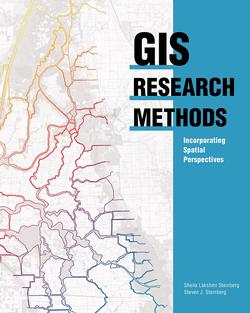Читать книгу GIS Research Methods - Steven J. Steinberg - Страница 86
На сайте Литреса книга снята с продажи.
Exploration
ОглавлениеWhen a study is exploratory, there may be little known about the topic. The goal of exploratory research is to begin to develop an understanding of the topic so that you can begin to develop additional questions or hypotheses.
Exploratory research is research at the tip of the iceberg. In other words, the researcher is trying out something for the first time. An example of this would be if you lived in a community where there is a shortage of affordable housing. The word on the street might be that only “old people” can afford to live in the nice section of the city anymore. As a researcher who is conducting exploratory research, you could create a GIS map that portrays the age distribution of people in particular areas of the city.
Figure 3.3 presents a map showing the distribution of people aged older than sixty-four. To further investigate the question of whether only the older population is able to afford housing in a particular region, the next step would be to overlay these data of the elderly population with housing prices for the same region. It could be that the elderly population can afford their homes because they bought them a long time ago, when the prices were lower. You might accomplish this by using a GIS and adding US Census population data to the mix.
Figure 3.3 A map of data grouped by census block, by age (older than sixty-four years), from 1990 to 2000, in the Eel River Valley near Fortuna, California. Map courtesy of Sheila Steinberg and Nicholas Ramirez, Humboldt State University/California Center for Rural Policy, with funding by the McLean Foundation, Fortuna, CA. Data from US Census, Esri.
This type of exploratory research would be the starting point for a more in-depth study of housing issues that could be conducted in the future. Exploratory research is an appropriate place to start for the researcher who is becoming familiar with a particular topic or situation. It is also a good place to start for someone who is interested in making an empirical investigation of general knowledge held by members of the community. This provides a way for a researcher to further examine if the word on the street has any validity and, if so, to what degree the information is true.
The exploratory research process can be somewhat challenging, but also exciting, because it occurs early on in the creative investigational process. Figure 3.4 presents an exploratory process that a researcher can follow to take a research question from its conceptual form to a more operational form, where a researcher can specify the particular data he or she is going to examine.
Figure 3.4 Exploratory process for taking a research question from concept to data in preparation for analysis.
